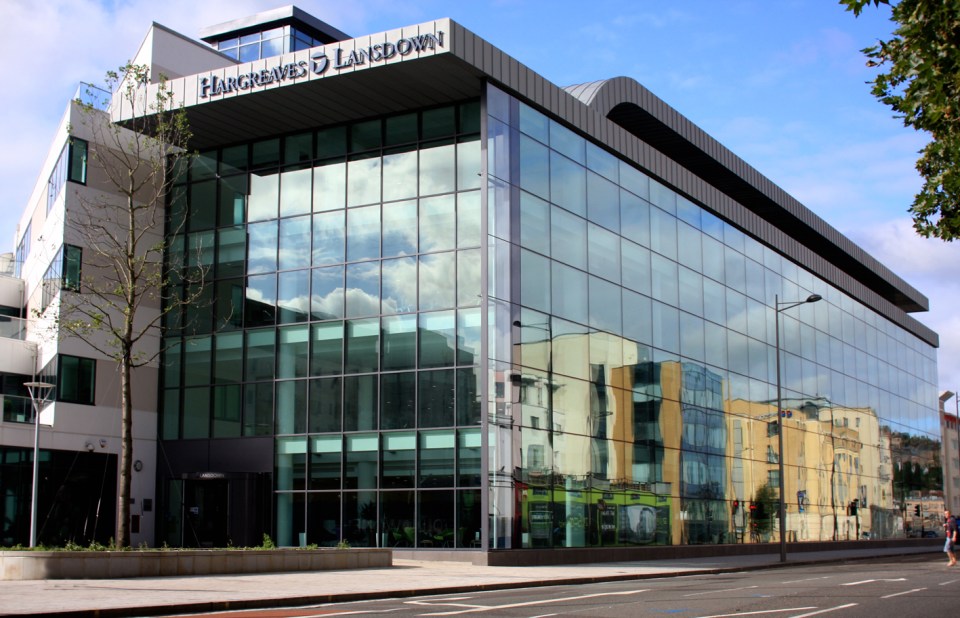Hargreaves Lansdown chief on spats with the founder, his time at the top and the power of retail investors

At times of turbulence, retail investors are entirely rational creatures. At least, that’s the view of Chris Hill, the outgoing boss of Britain’s largest retail investment and savings platform, Hargreaves Lansdown.
Hill – who has been at the helm of the retail giant since 2016 and is preparing to step down in November – was last week forced to reveal some unsettling turbulence in the flow of cash onto the platform.
A pandemic-induced retail investment boom that fuelled the growth of firms like Hargreaves Lansdown has long since evaporated. Confidence has slumped to all time low, and rocketing energy bills and rising prices have hammered wallets around the country.
Investing, Hill says, has fallen down the agenda, and the Bristol-based firm is to an extent feeling the effects.
“From an investor confidence perspective, we’re at a low point, and it coincides with the consumer confidence being there at the same time. So it’s not a surprise then to see subdued flows and of the flows that we are seeing,” Hill told City A.M. in an exclusive interview.
“Sudden changes in interest rates, ground war in Europe, a cost of living crisis, energy crisis. That’s what people are reacting to.”
The ebbs and flows of cash on the platform are just “ordinary people dealing with stuff”, he says.
Back to Earth
Hargreaves Lansdown reported a 30 per cent slowdown in net new business for the first six months of its year’s trading last week as spooked investors sat on their cash.
The new environment does mean that Brits are looking to new places with their money, however. The firm’s saving products for instance saw record flows as savers looked to cash in on sharp rate hikes.
Pre-tax profits also surged 31 per cent to £197.6m as Hargreaves Lansdown, like many of its peers, reaped the rewards of rising interest rates.
The slowdown in new business, however, marks something of a return to earth for Hargreaves Lansdown and the wider retail wealth market.
The platforms were thrust near the front of the national consciousness in 2020 when the UK’s bored middle classes, locked up inside through Covid lockdowns, rushed to either splurge their cash on the markets or squirrel it away in investment and savings accounts.
A poll by Barclays in 2021 found that the average UK investor planned to invest 19 per cent more each month post-lockdown, rising to 36 per cent for younger Gen-Z investors. But those intentions seem to be in retreat.

Hill says, however, there are more deep-rooted and long-term issues impacting Brits’ appetite for investment. The British public, he said, may just simply lack the wide-eyed and hopeful nature of our stateside counterparts.
“If you contrast the UK with the US, they’ve got the biggest stock market in the world and you can see the impact on the national psyche and how they think about investing. We are moving that way, but much, much slower,” he says.
“If you talk to a taxi driver in New York, they know about stock prices,” he adds
Figures paint a slightly less stark picture than the generally accepted picture of the US as the centre of the have-a-go investor universe. Post-pandemic research from Forrester in 2021 found that 14 per cent of adults in Britain are interested in automated investing, just behind the U.S. at 16 per cent.
And the might of UK financial institutions is now leaning into a retail shift, as Abrdn snapped up retail platform Interactive Investor, while JPMorgan and Lloyds bought wealth platforms Nutmeg and Embark respectively.
Hill said that financial firms were sensing a shift and were now looking towards amateur investors as a potentially deep pool of capital.
“In the past, if you talk to asset managers [about their] clients, it was very much about pension funds. Whereas if you talk to them now, they recognise the power of retail money,” he says.
Founder spats
Hill has poured cash into the firm’s tech offering and gone all-in on a strategy to boost its offer of combined digital and human advice in a bid to boost the firm’s share of the retail market.
But costs have risen significantly, and this has put Hill at the heart of a high-profile spat with the firm’s founder Peter Hargreaves, who still owns a fifth of the company and has a representative on the board.
Hargreaves most recently said it was “hardly surprising shares have collapsed” as Hill and his board “indulged in completely unnecessary irrelevant programmes, which have distracted the firm from its prime objective.”
Hill says he is entitled to his views but admits the barbs are an unwelcome distraction.
“It is frustrating when the comments are made, but let’s remember it is Peter and Steve Lansdown who started this business and […] under me the business has doubled in clients, we’ve doubled in assets, we’ve significantly increased our market share, we’ve diversified the business.
“It’s a way more digital business than it ever was before, but wouldn’t be there unless those guys had started the business. But the business is very, very different now.”
‘Significantly undervalued’
But the robust defence of his strategy has not managed to fully convince investors.
The firm’s shares are trading down 64 per cent from a 2019 peak, and are over 23 per cent down in the past 12 months.
As he waits to step down in November, Hill says the share price is one of his few gripes while handing over the reins.
The firm is still “significantly undervalued”, he argues. “Is that is that frustrating? Of course it is”.
Dan Olley, the chief of analytics firm Dunnhumby, will to take over in November and step into the firing line of Peter Hargreaves and face the public scrutiny that comes with running Britain’s flagship retail platform.
Will Hill miss the role? Are there any regrets?
“I think I’ve had a good innings, and now’s the time.”